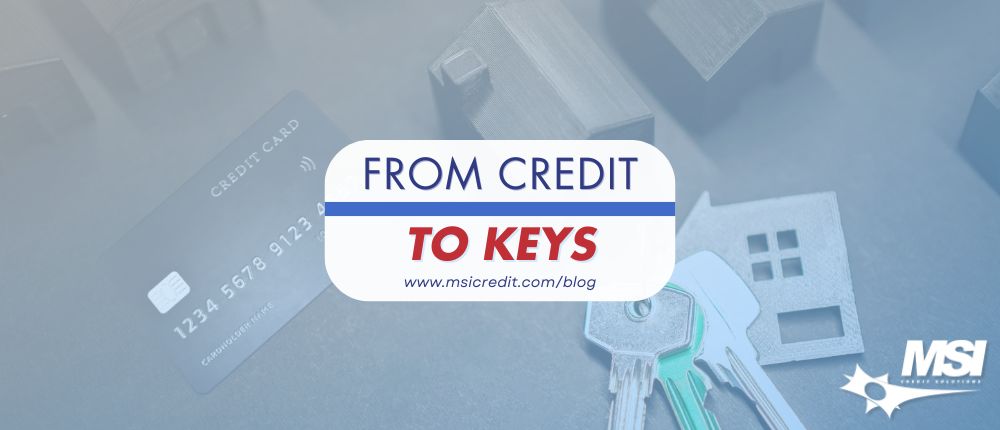Buying a home isn’t just about saving for a down payment; it’s about proving your financial reliability to lenders. Your credit profile plays a huge role in whether you’ll get approved, what your interest rate will be, and how much you’ll end up paying each month.
In today’s housing market, where interest rates and property prices continue to fluctuate, your credit score can make or break your dream of homeownership. Before you start touring houses, take time to get your credit in shape. Here’s how 👇
💳 1. Review Your Credit Report, Line by Line
Don’t assume your credit report is flawless.
Request your free annual reports from Experian, Equifax, and TransUnion at AnnualCreditReport.com.
Check for:
• Accounts you don’t recognize
• Duplicate debts
• Incorrect balances or limits
• Outdated negative marks
Even a small reporting error can drop your score and affect your mortgage terms.
If you find an error, dispute it immediately, the process can take a few weeks, so the earlier, the better.
📉 2. Lower Your Credit Utilization
Credit utilization, how much credit you’re using versus your total limit, makes up about 30% of your FICO score.
For example:
If your credit limit is $10,000, aim to use less than $3,000 (30%) at any given time.
Paying down your balances before your statement date can help improve your score quickly.
Tip: Instead of paying one large payment per month, make two smaller payments, mid-cycle and before your due date. It keeps your utilization consistently low.
⏰ 3. Pay On Time, Every Time
Payment history is the most important factor in your credit score, accounting for 35% of it.
A single late payment can stay on your report for up to seven years, but the good news is lenders value recent activity more.
If you’ve missed payments in the past:
• Bring your account current as soon as possible
• Set up auto-pay or reminders
• Ask creditors for a goodwill adjustment, some may remove one-time late marks for long-term customers
💼 4. Keep Your Oldest Accounts Open
It might be tempting to close old cards once they’re paid off, but resist the urge!
Credit history length plays a key role in your score.
The longer your accounts have been open, the more stable you appear to lenders.
Use older cards for small recurring charges (like subscriptions) to keep them active and pay them off monthly.
💸 5. Avoid Applying for New Credit
Every new application results in a hard inquiry, which can slightly lower your score.
Multiple inquiries within a few months may signal financial distress.
If you’re preparing to apply for a mortgage, avoid new credit cards, car loans, or “buy now, pay later” accounts for at least 90 days prior.
Remember: lenders want to see stability, not sudden bursts of credit activity.
🧾 6. Manage Your Debt-to-Income Ratio (DTI)
Even with a great score, lenders assess your DTI to see if you can comfortably handle a mortgage.
To calculate it, divide your total monthly debt payments by your gross monthly income.
For instance:
If you make $5,000 per month and owe $1,250 in debts, your DTI is 25%.
Most lenders prefer a DTI below 36%, though lower is always better.
You can improve your ratio by:
• Paying off small debts like credit cards or personal loans
• Consolidating high-interest debts into one payment
• Avoiding new loans before applying for a mortgage
🧠 7. Plan Ahead, Get Pre-Qualified Early
Pre-qualification helps you understand where you stand before the serious house hunt begins.
It can also uncover any credit issues early enough to fix them.
You’ll get a clearer picture of what loan amount you may qualify for — and at what rate.
Even if the numbers aren’t what you hoped for, it’s better to know now than when your dream house is on the line.
🔍 8. Diversify Your Credit Mix
Lenders like to see that you can manage different types of credit responsibly, like credit cards, installment loans, or auto loans.
If you only have revolving credit, consider a small secured loan or a credit builder loan to add variety to your profile.
Just don’t open too many at once; moderation is key.
💬 Final Thoughts
Improving your credit before buying a home isn’t about chasing a perfect score, it’s about proving financial consistency.
Even small changes, like lowering balances and paying on time, can raise your score and reduce your mortgage interest rate significantly.
It’s never too early to start, the more proactive you are, the smoother your path to homeownership will be.
🛠️ Need Help Strengthening Your Credit Before You Buy?
Let MSI Credit Solutions help you become mortgage-ready! 🏡💪
Our credit experts specialize in helping clients repair, improve, and protect their credit scores, ensuring you’re financially confident when the right home appears.
📞 Schedule your FREE consultation today and take your first step toward owning your dream home!
Request a Consultation with MSI
Disclaimer: Individual results may vary. Consult with financial professionals for personalized advice





